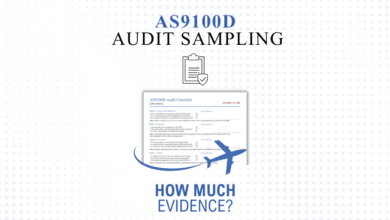Leadership Mindset: How To Cultivate One


Strategies For Developing A Leadership Mindset
In the dynamic world of corporate leadership, the mindset you adopt profoundly influences your effectiveness and the well-being of your team. A leadership mindset encompasses the beliefs, attitudes, and approaches that shape how a person leads.
Recognizing the connection between leadership and mental health is crucial; leaders set the tone for organizational culture, impacting employee satisfaction and productivity. This article aims to help leaders assess and develop a healthy, effective mindset.
Fixed Vs. Growth Leadership Mindset
Your leadership mindset, the core beliefs, attitudes, and approaches that shape your leadership style, profoundly impact your team, your organization’s culture, and, ultimately, its success. Two dominant mindsets exist: fixed and growth.
- Fixed mindset
Leaders with a fixed mindset often resist change, fear failure, and avoid challenges. They may believe their abilities are static, leading to a reluctance to innovate or take risks. This approach can stifle team creativity and hinder organizational progress. - Growth mindset
Conversely, leaders with a growth mindset embrace challenges, view failure as a learning opportunity, and adapt readily. They understand that abilities can be developed through dedication and hard work. This perspective fosters a culture of continuous improvement and resilience within teams.
Impact On Team Dynamics
A fixed mindset can create a fear-based environment, leading to stress, anxiety, and decreased morale. A growth mindset, on the other hand, cultivates a supportive and empowering environment, promoting psychological safety and boosting overall well-being.
The Role Of Emotional Intelligence In Leadership
Emotional intelligence (EQ) is the ability to understand and manage your own emotions, as well as recognize and influence the emotions of others. Key components include:
- Self-awareness
Recognizing your emotions and their impact. - Self-regulation
Managing your emotional responses appropriately. - Motivation
Harnessing emotions to pursue goals with energy and persistence. - Empathy
Understanding the emotions of others. - Social skills
Managing relationships to move people in desired directions.
Leaders with high EQ can successfully coach teams, manage stress, deliver feedback, and collaborate with others. Emotionally intelligent leaders create a positive and supportive workplace. They build strong relationships, communicate effectively, and inspire trust. They understand that employees are not just cogs in a machine but individuals with unique needs and aspirations.
Resilient Leadership: Managing Stress And Uncertainty
Leadership often involves navigating stress and uncertainty. Resilient leaders maintain composure under pressure, make sound decisions, and inspire confidence among team members. Strategies to build resilience include:
- Self-care
Prioritizing physical health through regular exercise and adequate sleep. - Setting boundaries
Balancing work and personal life to prevent burnout. - Seeking support
Engaging in mentorship or peer networks for guidance.
By staying calm, focused, and decisive, resilient leaders contribute to organizational stability and inspire confidence among team members [1].
Leading With Purpose And Compassion
Effective leadership is rooted in purpose and compassion. Values-driven leaders inspire their teams by connecting their work to a larger mission. They create a sense of meaning and purpose, motivating individuals to contribute their best.
Building trust and psychological safety is paramount. Employees need to feel safe to express their opinions, take risks, and admit mistakes without fear of reprisal. Compassionate leaders create a culture of trust and respect, where individuals feel valued and supported. They understand the importance of balancing productivity with employee well-being.
Practical Steps To Cultivate A Strong Leadership Mindset
- Self-reflection
Regularly assess your strengths and areas for growth. - Continuous learning
Engage in professional development opportunities to enhance your skills. - Mindfulness practices
Incorporate techniques such as meditation to manage stress [2]. - Seek mentorship
Learn from experienced leaders to gain diverse perspectives. - Peer support
Connect with other leaders to share experiences and learn from each other.
By implementing these strategies, leaders can develop a mindset that promotes personal growth and organizational success.
Conclusion
Cultivating a healthy and effective leadership mindset is essential for individual and organizational success. By embracing a growth-oriented approach, developing emotional intelligence, practicing resilience, and leading with purpose and compassion, you can create a thriving environment where individuals flourish and organizations achieve their full potential.
Remember, leadership is a journey, not a destination. Continuously learning, adapting, and refining your approach is key to becoming an exceptional leader.
References:
[1] The Importance of Resilience in Leadership: Thrive in Times of Change [2] How Mindfulness Practices Can Support Mental Health Treatment?Resources:
FAQ
A leadership mindset comprises the beliefs, attitudes, and approaches that shape how a person leads, influencing decision-making and team dynamics.
Emotional intelligence enables leaders to understand and manage their own emotions and those of others, fostering effective communication and collaboration.
Leaders can build resilience by practicing self-care, setting boundaries, seeking support, and maintaining a positive outlook during challenges.
A growth mindset encourages the embracing of challenges and the viewing of failures as learning opportunities, leading to innovation and continuous improvement within teams.
By aligning actions with core values, building trust, and prioritizing employee well-being, leaders can create a supportive and motivated work environment.
Source link





